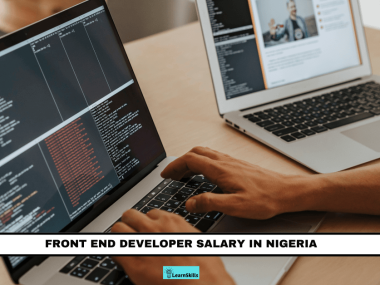Are you curious about the salary of a ward superintendent in Nigeria? The average net salary for a ward superintendent in Nigeria is often around ₦452,000 per month, though this can vary based on experience and location.
Understanding the pay scale can help you make informed decisions about your career or job offers. Salaries may differ between public and private sectors or even between different states.
As you read on, you’ll discover more about the factors that influence these salaries and what benefits might come with this position. You’ll gain a clearer picture of what it means to work as a ward superintendent in Nigeria.
Overview of the Role of Ward Superintendent in Nigeria
A Ward Superintendent in Nigeria plays a key role in local governance. This position involves managing and overseeing the activities within a specific ward. You are responsible for ensuring that community needs are met effectively.
Your duties include coordinating development projects, maintaining public facilities, and addressing local issues.
Key Responsibilities:
- Community Engagement: You interact with residents to understand their needs and concerns.
- Project Management: Oversee projects funded by the government or NGOs to improve local infrastructure.
- Reporting: Provide regular updates to local authorities about the status of community issues.
Human rights are an important aspect of your work. You must ensure that the residents’ rights are protected and that everyone has access to basic services. This includes advocating for the vulnerable and marginalized groups in your community.
In addition to your administrative tasks, you may also play a role in promoting awareness about rights and responsibilities among the citizens. This can help foster a more informed and engaged community.
Understanding the social dynamics of your ward is essential for success in this role. You need to be aware of the diverse backgrounds and needs of residents to serve them effectively.
Compensation Structure for Healthcare Professionals
Healthcare professionals in Nigeria receive compensation based on various factors, including experience, roles, and government regulations. Understanding this structure can help clarify what to expect within the field.
Determining Factors
Several factors influence the salaries of healthcare professionals in Nigeria. Key aspects include:
Experience: More years in the field often lead to higher pay. Entry-level positions typically start lower than those with advanced experience.
Role and Responsibilities: Specific roles, like ward superintendents, come with unique responsibilities that can impact salary levels.
Government Policies: Salary structures like CONMESS (Consolidated Medical Salary Structure) dictate wages for medical staff. This structure ensures a baseline salary that can be adjusted based on divisions, which are categorized by levels of seniority and specializations.
Location: Salaries can vary across different states in Nigeria, influenced by the local cost of living and demand for healthcare services.
Comparison With Other Healthcare Roles
When comparing the salary of ward superintendents to other healthcare professionals, you might notice differences based on responsibilities.
Doctors and Nurses: Doctors, especially specialists, tend to earn higher salaries than ward superintendents. For example, while a superintendent might average around ₦452,000 per month, a doctor’s salary can reach ₦926,225 monthly, depending on their qualifications.
Allied Health Workers: Roles like radiographers and laboratory technicians often have varied salaries but generally start lower than medical doctors.
Government vs. Private Sector: Salaries can differ significantly between public and private healthcare facilities. Private institutions might offer higher pay but usually with fewer benefits.
This comparison highlights the importance of roles within the healthcare system and how they relate to compensation.
The Annual Salary of a Ward Superintendent
The salary of a ward superintendent in Nigeria can vary based on factors like experience and location. Currently, specific figures for this role may not be widely published.
From available data, some government-related positions show average salaries around ₦452,000 per month. This amounts to approximately ₦5,424,000 per year. While this number represents one estimate, actual salaries for ward superintendents may differ.
It’s important to note that salaries in Nigeria can depend on the organization and its budget. Some roles may pay less or more based on local government policies.
Here’s a brief comparison of salaries by different positions related to superintendents:
| Position | Monthly Salary (₦) | Annual Salary (₦) |
|---|---|---|
| Ward Superintendent | 452,000 | 5,424,000 |
| Ward Superintendent (US)* | – | 95,108 USD (approx.) |
*US salary provided for context, not Nigeria.
Your negotiation skills can also play a significant role in salary discussions. Be prepared to discuss your qualifications and experience.
Government Regulations on Health Workers’ Remuneration
The remuneration of health workers in Nigeria is shaped by governmental oversight and various legal frameworks. Key influencers include the National Assembly and human rights doctrines that seek to regulate fair pay and working conditions.
National Assembly’s Involvement
The National Assembly plays a crucial role in setting laws that affect health workers’ salaries. It formulates policies through the passage of bills that aim to improve compensation.
For example, the National Health Act outlines guidelines for managing health facilities and worker remuneration. This act helps ensure that health workers, including ward superintendents, receive competitive salaries based on existing standards.
Additionally, ongoing debates within the assembly often focus on reviewing and updating salary structures to reflect changing economic conditions. With many health workers calling for improvements, the assembly’s decisions are critical in shaping fair pay.
Legal Framework and Human Rights
The legal framework around health worker remuneration in Nigeria is tied closely to human rights. International agreements emphasize the right to just and favorable working conditions. These rights extend to fair pay for all health workers.
The Constitution of Nigeria also includes provisions that protect against discrimination in the workplace. This means that health workers have a legal basis to demand fair remuneration.
Several studies have hinted at the need for a better compensation model to attract and retain skilled professionals. The emphasis is on ensuring that salaries meet basic living standards, reflecting the value of health workers’ contributions to society.
Together, these frameworks aim to create a balanced system where health workers are fairly compensated and supported.
Challenges and Opportunities for Ward Superintendents
Ward superintendents face unique challenges that can impact their effectiveness. However, there are also valuable opportunities for growth and improvement in their roles.
Focusing on workforce management and professional development can help you navigate these obstacles while enhancing your impact in the community.
Workforce Management
Managing your team can be a complex task. You need to ensure that you have the right blend of skills among your staff. Recruitment can be challenging due to limited resources and budget restrictions.
Your ability to motivate and retain staff is crucial. Many workers may seek better compensation or opportunities elsewhere. It’s useful to create an environment that supports teamwork and encourages open communication.
Key strategies include:
- Regular training sessions to enhance skills.
- Clear roles for each team member.
- Feedback mechanisms to improve performance.
Efficient workforce management can lead to higher productivity and job satisfaction among your team.
Professional Development
Investing in your professional development is vital for long-term success. As new challenges arise, you need to stay updated with best practices and trends in education and administration.
You can explore various pathways for growth. Attending workshops, conferences, or online courses can broaden your knowledge and skills. Networking with other superintendents can provide insights and new strategies.
Consider these options:
- Mentorship programs with experienced superintendents.
- Certification courses in educational leadership.
- Collaboration with local colleges for advanced training.
By prioritizing professional growth, you can enhance your abilities and lead your ward more effectively.










